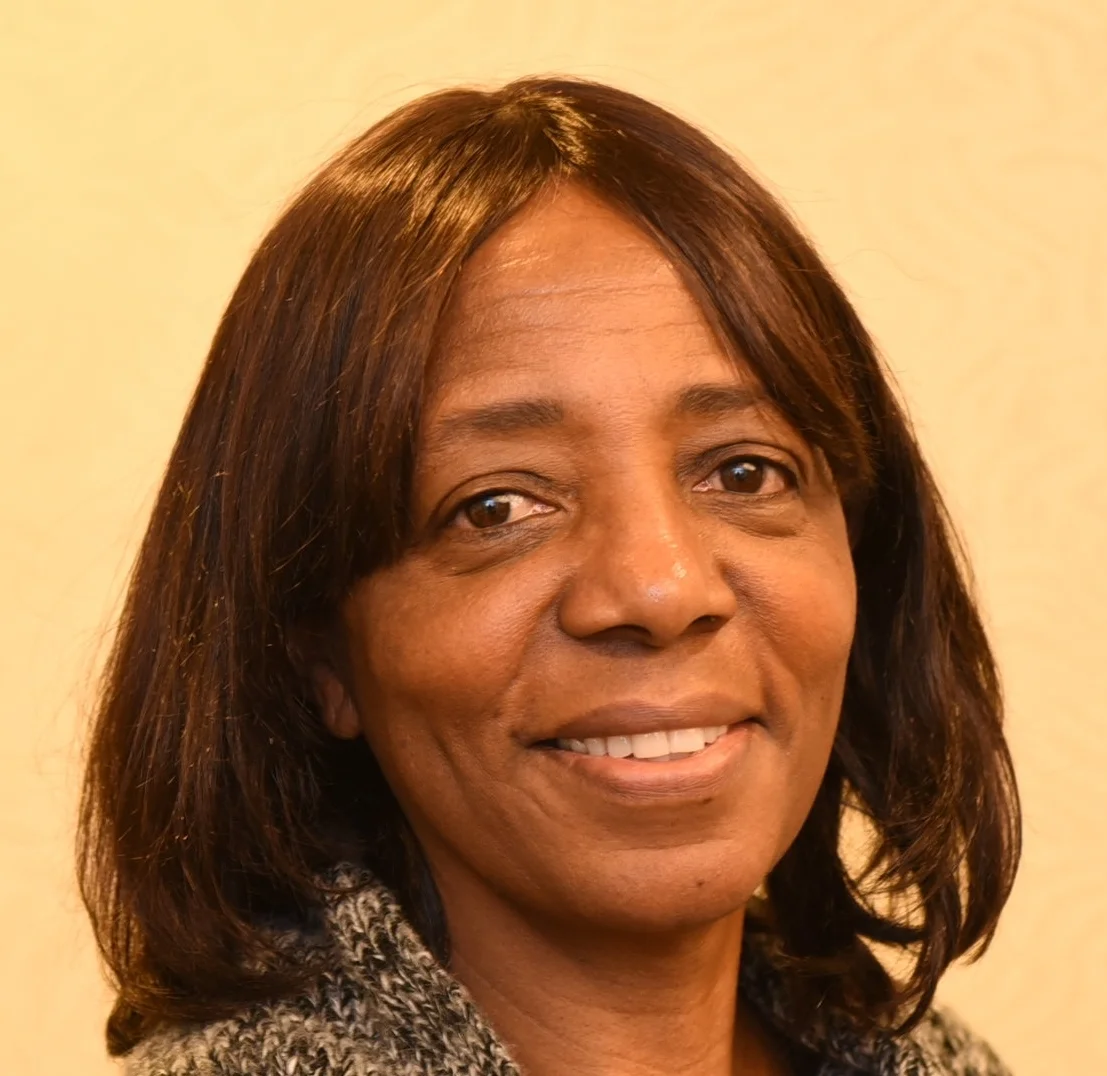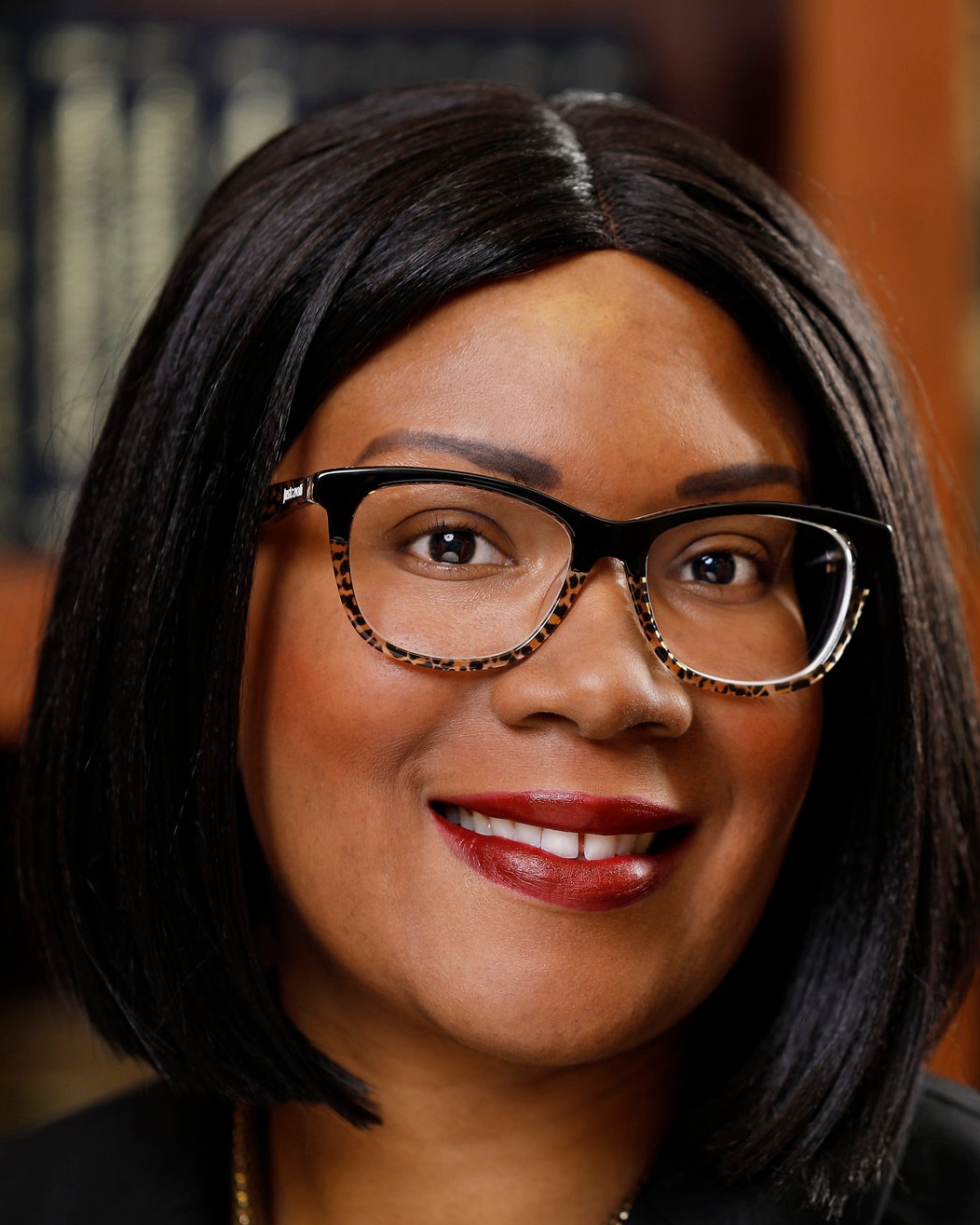ABLE's first female president was its inaugural recognition awardee
January 10, 2019
Could I become the president of this organization?
Jacqueline Edwards asked the question as she was recognized at the Association of Black Law Enforcers (ABLE) inaugural gala in 1993.
She got the answer 25 years later.
Staying close to ABLE over two decades, Edwards was rewarded with the presidency, becoming the first female to lead the organization.
“I have always felt very grounded in ABLE,” said the Correctional Service of Canada (CSC) regional recruitment manager. “The organization has been that safe place in terms of an extension of my family. There are so many people in ABLE that I can reach out to and relate to. They invested in me, they saw something in me that I didn’t see in myself and that in itself is more powerful than I think anyone can truly understand. When they honoured me, I felt abled and enabled. For me, ABLE is more than an acronym. It motivated me to pursue law enforcement and do whatever I could to be an ambassador.”
After completing the correctional training program in March 1995, Edwards was assigned to Bath, a medium security institution in Kingston for male offenders. A few years ago, she became the first Black female in the CSC Ontario region to be appointed to the executive ranks.
“Most of what I have achieved is because of ABLE which has given me so much,” she said. “There were days when the transition from a very diverse city like Toronto to a not-so-diverse Kingston was very challenging for me and that was not just because my immediate family was not with me.
“When I first had to do weapons training in order to successfully graduate, it was David Mitchell (ABLE’s founding president) who told me not to worry. He encouraged me to come to Toronto on weekends so I could go over that with him. When I was challenged by the curriculum, David would either come to Kingston to see me or ask me to come to Toronto to meet with ABLE members Jay Hope (retired Ontario Provincial Police senior officer and provincial deputy minister) and Lynell Nolan (retired Royal Canadian Mounted Police officer). Many times after completing a midnight shift, I told David I was not sure I could do the job anymore and he would say, ‘Yes, you absolutely can’. I was alone in Kingston, but I had an extended family through ABLE. For me, giving back to ABLE is like giving back to my family.”
Edwards was introduced to the organization while enrolled in the Humber Institute of Technology & Advanced Learning law and security administration program.
“To be honest, I didn’t know anything about the organization when I was identified for the award,” she pointed out. “I thought they were only giving it to me because I was Black and one of the very few in the program.”
Sharing her concerns with now Humber associate vice-president (academic) Gina Antonacci, Edwards was assured that ABLE was a reputable organization that was interested in the development of young people pursuing a career in law enforcement.
“As people of colour, we are almost looking for that validation that we are more than just the colour of our skin,” she said. “Gina was that voice that said, ‘No, I know we do that, but in this case we didn’t do it.’ It was very important for me to have that conversation with her.”
While at Humber, Edwards also had the support of ex-Trinidad & Tobago police officer Frank Coburn who migrated to Canada in 1972 and was a correctional officer for five years before becoming a professor in Humber’s Centre for Justice Studies law and security administration program.
He suggested she contact York Regional Police Service inspector Chris Bullen who was ABLE’s secretary.
“As one of the few Black professors at the time, Frank also encouraged me to stay the course because I was pregnant and in school back then,” she said.
ABLE was founded to, among other things, encourage racial harmony and cultural pride in the law enforcement community and the wider society, promote and protect the interests of Blacks and other racial minorities in the profession and work closely with law enforcement agencies to stimulate and facilitate employment equity programs.
The organization also advocates against racial profiling and has moved police leaders to understand that such issues are not resolved by abject denial, the commissioning of studies or simply ignoring valid recommendations that have already being undertaken.
“My vision is for ABLE to go back to its intent and that’s the people that the organization was set up to work with and for,” Edwards said. “When someone like me who wants to contribute to the community as a police, correction, probation or border security officer, understanding what it means to take on that challenge and have the support of an association in front, beside and behind you is critical.
“We also need to assess the gains ABLE has made, what changes it has caused and what work needs to be done and more importantly where. Advocacy has changed because we are now at the table. But we still have to advocate for the issues of concern. Gone are the days when we had to beg for some time with a deputy police chief or hope we could speak to a chief. When we are seated at the table now, we have to come with strategies that will help deliver change. Everyone knows what is wrong. What’s wrong is that there’s a gap between intent and actual. The intent is to diversify your workforce, to have more senior managers of colour and to ensure that young Black boys and girls can pursue post-secondary education. But what are we doing practically to ensure that happens. We have to move from discussion to decision to action and then assess and evaluate.”
Jacqueline Edwards (second from right) with CSC recruitment officer Gideon Nekou (l) and visiting Bermuda correctional officers Bernadette Murray & Doan Cleare
Reconnecting at age seven with her mother in Canada who had left her in the care of an aunt and grandmother in Jamaica for five years, Edwards pursued law and security studies because of a bad experience at Pearson International Airport while returning from a visit to Jamaica.
“I was around 12 years at the time and I vowed I would become an immigration officer and treat visitors better than I felt I was treated,” recalled the Blessed Cardinal Newman Catholic School graduate.
While volunteering at the Toronto Don Jail as an English tutor, Edwards saw something she didn’t expect.
“When I got there, I realised that in addition to the high Black inmate population, there were a lot of correctional officers that looked like me and that raised my curiosity,” the former Heron Park Community Centre boys basketball coach pointed out. “I thought it was a career I could pursue, but I still wanted to be an immigration officer.”
Edwards made the switch from immigration to corrections after attending a 1994 ABLE career fair where McMaster University graduate and CSC regional manager Donovan Blair was manning his organization’s booth.
“He was the only Black person at any of the booths and no one was going to his,” she recalled. “I wasn’t happy at the time because I was a security guard at a Scarborough mall. It was Donovan who encouraged me to pursue a career with CSC.”
While swiftly ascending her organization’s ladder, Edwards served six years as the president of the National Council of Visible Minorities in the Federal Public Service, chaired various CSC sub-committees and led recruitment outreach programs to inform diverse ethnocultural groups, Aboriginal communities and educational institutions about career opportunities in the CSC and federal public service.
Though taking a break for a few years because of family and exacting work commitments in eastern Ontario, ABLE has always been near and dear to the heart of Edwards who was a vice-president and director of communications. She also represented the organization at events in New York, Detroit and New Orleans.
When the eldest of she and her husband’s three children, Jermaine, died suddenly in February 2017 at age 27 and her father passed away a few months later, Edwards found amazing support in ABLE, her family, friends and faith.
“They have always been the wind beneath my sail,” she added.
Hope, Nolan, probation officer Tony Weekes and Toronto Police Service officer Doreen Guy – all retired – along with Mitchell, Bullen and D.J. Marks who is the National Use of Force & Tactical Training Coordinator at the M.D. Charlton Law Enforcement Training Academy in Langley, British Columbia, founded ABLE in 1992 at a meeting at L’Amoreaux Community Centre in Scarborough.







